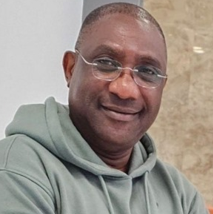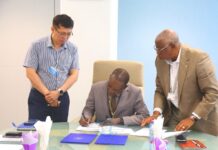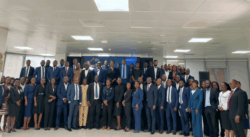By Sammy CRABBE
In the first three parts of this series, we unpacked the urgent need for radical education reform.
From reimagining how our public universities are governed, to elevating vocational training, aligning STEM education with economic needs, and transforming technical institutions – we are building a blueprint for national transformation.
But the system must also respond to a pressing challenge: how do we retain top talent in Ghana and channel it toward national development?
Enter the Digital National Service Corps – a bold idea that could turn our current National Service Scheme from a box-ticking exercise into a powerful engine for digital innovation, government efficiency, and inclusive growth.
But before we explore how this Corps would work; we must address a crucial partner in Ghana’s educational ecosystem: private universities.
Private universities: Ghana’s untapped innovation pipeline
Private universities have grown significantly in Ghana over the past two decades. Institutions like Ashesi University, Central University, Lancaster University Ghana, Academic City, and Regent University have shown that quality, discipline, and innovation are possible within Ghana’s borders.
Many of these institutions are nimble, technology-driven, and more aligned with global standards than their public counterparts.
Yet, private universities are often excluded from national planning and policymaking – treated as afterthoughts rather than allies.
This is short-sighted. If we are serious about building a digital economy, we must fully incorporate private universities into the national development framework.
Private institutions are uniquely positioned to:
- Pilot experimental programs without bureaucratic delays.
- Attract diaspora faculty and visiting professors from international networks.
- Introduce cutting-edge curricula faster than public universities.
- Partner with global firms, VCs, and accelerators with fewer restrictions.
We must therefore create a formal partnership framework between government and private universities. Let them co-design national digital education targets. Let them bid for public funding to support digital skills programs.
Let them send their graduates into the Digital National Service Corps. And let us support their expansion into underserved regions with land, infrastructure, and access to GETFund-backed financial aid.
It is time we stopped viewing private universities as luxury alternatives – and started viewing them as essential collaborators in Ghana’s innovation journey.
The digital national service corps – a bold reimagination
Now to the heart of the matter: transforming national service from a year of clerical tedium into a structured digital development engine.
Every year, Ghana releases tens of thousands of graduates into National Service, only to assign many of them to repetitive, paper-based, low-impact roles in government offices.
In many cases, their talents go underutilized, their enthusiasm fades, and the nation misses a golden opportunity to deploy its youth toward transformation.
Let us change that.
The Digital National Service Corps (DNSC) would be a competitive, merit-based track within the broader national service scheme.
It would identify graduates from both public and private universities – especially those with digital, entrepreneurial, and technical skills – and place them in strategic innovation roles across sectors.
Here’s how it would work:
- Pre-deployment bootcamp:
Selected candidates go through a 4–8-week training program focusing on digital governance, project management, civic tech, and entrepreneurship. They learn not just theory, but how to build real-world digital solutions. - Strategic placements:
Corps members are deployed to:
- Government agencies to digitize workflows, build dashboards, and support e-governance.
- Local governments to design citizen feedback systems, GIS mapping, and automation tools.
- Startups and SMEs within the One Square Mile and across Ghana to provide talent and expand digital products.
- Community hubs and schools to train youth in coding, digital marketing, and device maintenance.
- Innovation mandate:
Each Corps team must complete a capstone innovation project – an app, policy framework, open-source tool, or scalable model addressing a real Ghanaian problem. The best projects receive post-service funding and incubation support. - Diaspora mentorship:
DNSC members are matched with diaspora professionals for ongoing mentorship, creating a global support system that builds career exposure, discipline, and international linkages. - Exit pathways:
Graduates of the DNSC feed directly into startups, civil service tech units, or receive startup grants to launch ventures. Government, in turn, benefits from digital infrastructure and improved service delivery.
Building national pride around competence
Imagine if, every year, 2,000 of Ghana’s brightest young minds were celebrated not for their party affiliations but for the real, measurable impact they had on national development.
Imagine ministries transformed by young engineers. Imagine startups launched by fresh graduates. Imagine policies influenced by data dashboards built by 22-year-olds from Cape Coast, Kumasi, and Tamale.
Let us make competence, not connections, the currency of national pride.
This is not wishful thinking. It has been done.
Countries like Estonia built their digital state using youth tech teams. Rwanda trains high-potential youth to digitize government services and agricultural systems. Singapore’s Smart Nation Fellows Program assigns its best young minds to build software for public infrastructure. Ghana can do the same – and better – if we choose courage over inertia.
Conclusion: Let talent rise
The time has come to stop suppressing Ghanaian talent under layers of bureaucracy, low expectations, and political gatekeeping. Let us reimagine national service as a rite of innovation. Let us empower private universities. Let us build bridges with the diaspora. Let us align education with purpose – and purpose with opportunity.
Because in the end, it is not gold, oil, or cocoa that will determine Ghana’s future. It is the young woman who learns Python in Ho, the startup team testing solar irrigation in Tamale, and the returning diaspora engineer who mentors them both. Let us build an economy and an education system that lets such talent rise.
>>>the writer is a PhD researcher specializing in blockchains and decentralized finance at the University of Bradford. He holds an MBA in International Marketing and a post-graduate certificate is research from the International University of Monaco. Sammy was the first president of the Ghana Business Outsourcing Association and developed Africa’s first data entry operation and Ghana’s first medical transcription company. He can be reached via [email protected]










